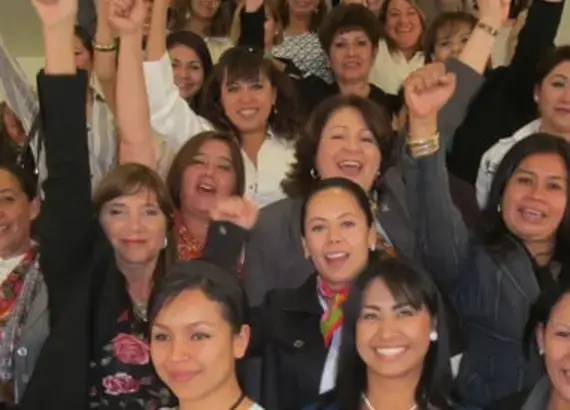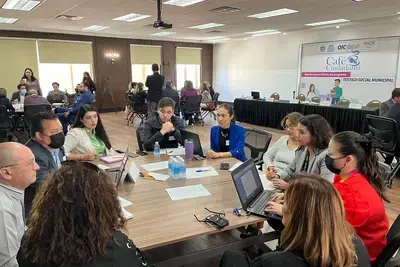
Success Story
‘Future Women Mayors’ Academy Kicks Off in Mexico
Mexico’s gender quota system has made a significant difference for women seeking election to the Mexican Congress. In the last 15 years, the percentage of seats occupied by women has increased from 10 to 26 percent.
But at the municipal level, women have not had such success. The number of women mayors in the country averages 5.5 percent, and in some areas the percentages are smaller. An example is the Mexican state of Michoacán, on the central western coast, which elected just three women mayors in its 113 municipalities.
To address those disparities, the “Academy for Future Women Mayors” kicked off last month in Michoacán to help provide women activists from all registered political parties with the motivation, skills and networks to position themselves to win mayoral races.
The inaugural event was attended by more than 200 people, including state party presidents, state legislators, city council members, women activists, members of the media and 50 aspiring women mayors set to hone skills that could ready them for a run at mayoral seats this November.
The kickoff event featured keynote speaker Laura Sesma, a former city council member, federal legislator and current mayoral candidate from Argentina’s second largest city, Córdoba. Sesma told the participants that they were not alone -- that obstacles they would confront were similar to those faced by women all over the world. She urged them to work together, regardless of their political party, to change politics.
There is strong evidence that women elected to office tend to emphasize quality of life issues that reflect the priorities of families, women, and ethnic and racial minorities. “When one woman goes into politics, she will change, but when many women go into politics, politics themselves will change,” Sesma said, citing the former Chilean president Michelle Bachelet, who became the first woman to hold that post in 2006.
 Participants collaborate in the second session of the course on April 14.
Participants collaborate in the second session of the course on April 14.The inaugural program also included a panel of three current and former women mayors from Mexico’s three major political parties: the Institutional Revolutionary Party (PRI), the National Action Party (PAN) and the Party of the Democratic Revolution (PRD). Panelists shared their personal experiences in competing for mayoral posts, articulating both the challenges they overcame and the lessons they learned in the process.
The 50 women selected to participate in the six-month academy come from all of the registered parties in Michoacán and were selected in proportion with their party representation in the state legislature. They will complete an approximately 60-hour course with periodic workshops over the next four months, finishing at the end of August.
Internal party elections will closely follow the end of the academy, giving the women a chance to employ their newly acquired skills.
Related:
- Read Mexican press coverage of the academy in
El Centro de la Noticia, Quadratin, AIDI and La Jornada Michoacán - Tijuana Civic Groups Use Opinion Research to Strengthen Police Reform Proposal»
- Mexican civic groups bring public security concerns to politicians»
Pictured above: Participants in the academy
Published April 26, 2011



